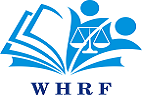BOLIVIA
The social, economic, political and human rights crisis in Bolivia which began in the aftermath of the 20 October 2019 elections continued in 2020. The crisis was exacerbated by the COVID-19 pandemic, which reached very worrying dimensions in the country, disproportionately affecting those in vulnerable situations. Those defending human rights and the rights of Indigenous Peoples, journalists and political opponents, or those perceived as such, continued to be threatened and harassed.
Background
On 13 August, after two postponements due to public health considerations relating to COVID-19, the Plurinational Legislative Assembly, the interim government and the Supreme Electoral Tribunal agreed that a general election should be held on 18 October 2020. On 23 July, after the second postponement was announced, demonstrations, including roadblocks, intensified amid complaints by the authorities and the general population that the blockades were preventing key supplies for dealing with COVID-19 from reaching various communities that needed them. There were also reports of violence by some protesters and between groups of protesters, with interventions by the security forces. Early on 14 August, there were reports of an attack with explosives on the office of the Bolivian Union of Workers (COB) in La Paz. The COB had played a key role in the demonstrations.
Bolivia reported its first cases of COVID-19 in March 2020 and on 12 March the acting President declared the situation a national emergency. Supreme decrees and subsequent laws established additional quarantine measures and mandatory stay-at-home regulations, among other economic and social measures to deal with the pandemic. As of 31 December, the Ministry of Health had reported 160,124 confirmed cases of COVID-19 and 9,165 deaths related to the virus.
On 18 October, general elections for the President, Vice-President and members of the Legislative Assembly were held. On 8 November, Luis Arce, the Movimiento Al Socialismo party candidate, took office as President.
Excessive and unnecessary use of force
In the context of the post-election crisis, human rights violations were perpetrated, including the use of excessive and unnecessary force by the National Police and the Armed Forces to repress demonstrations. At least 35 people died and 833 were injured. These human rights violations were not adequately investigated, tried and punished, resulting in impunity.1
Impunity
On 23 January the Inter-American Commission on Human Rights (IACHR) announced an agreement with the interim government of Bolivia for the creation of an Interdisciplinary Group of Independent Experts (GIEI) to investigate acts of violence and human rights violations committed between 1 September and 31 December 2019. However, the government publicly questioned the independence of two of the four members of the GIEI announced by the IACHR. On 28 April, the IACHR announced that it would include a fifth member “to strengthen the GIEI” and that the Group would be installed soon. On 23 November, the GIEI was installed and on 22 December it announced that it had concluded the “preliminary stage” of its work, which entailed meetings with groups of victims and witnesses and with civil society organizations.
Human rights defenders
Human rights defenders, such as Waldo Albarracín, continued to be threatened and harassed while criminal investigations into attacks on them remained stalled, and the authorities failed to provide human rights defenders with appropriate protection so that they could carry out their legitimate work.
Freedom of expression
Journalists and social communicators reported that the right to freedom of expression was being unduly restricted in Bolivia by means of threats, attacks and attempts to silence the national and international media. The interim government created a climate of fear and censorship through its public statements and regulations, and harassed and threatened political opponents and those perceived as such. It issued public threats, accusing political leaders of spreading “misinformation” and journalists of “sedition”. The government also accused people of participating in “destabilization and disinformation movements” and of conducting a “virtual war” against it.
In the context of the pandemic, the government also issued regulations that raised a number of concerns, such as Supreme Decrees 4199, 4200 as well as 4231 which modifies the first two. Some articles of these decrees violated the right to freedom of expression, for example establishing a crime against public health for “spreading wrong information” about COVID-19 or “generating uncertainty in the population”. These decrees were later repealed. Nevertheless, they served to intensify the harassment against political opponents and those perceived as such, as did criminal proceedings and detentions.
Indigenous Peoples’ rights
Indigenous Peoples were disproportionately affected by the pandemic. Their right to participate in decision-making processes on issues affecting their rights continued to be undermined by the granting of licences for economic projects on community lands without their free, prior and informed consent. According to the Office of the Ombudsperson, in the context of the pandemic, there was a lack of a public health policy to protect Indigenous Peoples and an increase in the use on social media of racist rhetoric that stigmatized them.
Rights of lesbian, gay, bisexual, transgender and intersex (LGBTI) people
On 3 July the Second Constitutional Chamber of La Paz Departmental Court of Justice annulled a decision by the National Civil Registry to deny registration for a same-sex civil union. The Chamber ordered the Civil Registry to issue a new resolution upholding international human rights standards. The order was not complied with and the Civil Registry lodged a request with the Plurinational Constitutional Tribunal for a precautionary measure to suspend the effects of the ruling; this remained pending at the end of the year. On 9 December, the Civil Registry complied with the Chamber’s order and issued a new resolution, allowing two men to become the first same-sex couple to register their civil union.
